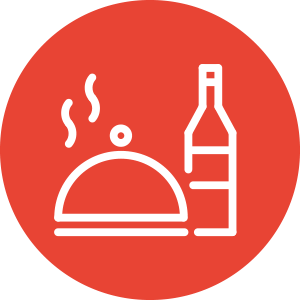


How to eat well is an issue of growing importance for a lot of people. As the world's population rapidly increases, it s leading to problems such as food supply being unable to meet demand and …
more
How to eat well is an issue of growing importance for a lot of people. As the world's population rapidly increases, it is leading to problems such as food supply being unable to meet demand and food distribution mechanisms being unable to cope. How can we find ways to deal with food waste, reduce food transportation costs, and encourage scientific food distribution? These are the issues that people are looking for solutions to. Some have tried building tents with solar panels for storing food. This is a low-carbon approach to extending food shelf life that also improves the efficiency of food transportation and storage, and reduces food wastage. We are also seeing people no longer restricting themselves to buying "picture-perfect" food: oddly shaped bananas and peaches, typically sifted out during procurement in the past, are now finding themselves more accepted by the public.
Based on the notion of “eating well”, Shinho aims to help build a food system that feeds more people by promoting and teaching new farming techniques, culinary waste management mechanisms, and food consumption principles.

Eating safely is something that everyone expects of every meal. As people focus more on the source and quality of their food, they are starting to show more interest in …
more
Eating safely is something that everyone expects of every meal. As people focus more on the source and quality of their food, they are starting to show more interest in small-scale farmers. Keywords such as “healthy”, “fresh”, “local produce”, and “direct delivery” are becoming focal points of many daily conversations. Increased public discussion around food safety means that the source of demand is helping to drive change and transparency in the food supply and sale system.
Shinho has always stood by the principle of “we don’t sell to our customers what we wouldn’t eat ourselves”. Whether it’s a bag of soy sauce or a spoonful of condiment, we want families not to have to worry about food safety. From our organic Sunrise Farm to our CNAS-certified food safety lab, we are striving to build a seed-to-table food ecosystem that provides real, quality, safe food for our customers. From farm to table, we hope to inform people about where their food comes from and how it was produced, so that they can relax and enjoy eating it.

Food safety is necessary for healthy eating, as eating healthily means consuming a balanced diet of safe foods. Balance includes choosing organic ingredients and …
more
Food safety is necessary for healthy eating, as eating healthily means consuming a balanced diet of safe foods. Balance includes choosing organic ingredients and condiments, controlling your intake of protein, fat and carbohydrates, and saying no to unhealthy styles of cooking. As unbalanced diets have led to widespread child obesity, more and more people are showing an interest in healthy eating. They are coming to expect more of professional guidance, products, and services related to healthy eating.
At Shinho, everything begins from basic condiments. We find ways to reduce sugar and salt, while still ensuring a great taste, so that we can help people control their daily intake more easily. Our goal is to bring healthy eating to customers starting from the basics. Through our food education platform "Food & the Home" (shi yu jia), we aim to share our wealth of knowledge about healthy eating and promote healthy eating principles. At the same time, we are striving to popularize healthy eating habits further by bringing together ideas and resources from around the world and through ongoing learning, investigation, innovation, and practice.

Mindful eating means taking control of your food system, and reducing carbon emissions by making improvements to it. It entails biotechnological research and …
more
Mindful eating means taking control of your food system, and reducing carbon emissions by making improvements to it. It entails biotechnological research and trade-offs, for example, using the food chain to manage pest control. In addition to health and safety, perseverance and responsibility are key in this process. With the emergence of organic farms over recent years, people are beginning to wonder what “organic” really means. We see it as less of a result, and more of a process. It is about learning how to farm sustainably, how to build an integrated ecosystem, and how to eat mindfully and responsibly.
Shinho's approach to mindful eating is to closely follow the latest developments in food technology and look for ways to put them into application and introduce them to a wider audience. For example, we are working with organic farmers to help them develop quality sales channels and build innovation teams and communities focused on food research. In doing so, we hope to bring the message of organic farming to more people, so that together we can drive the improvement of the whole food ecosystem.



We believe that good crops come only with good soil and water. We seek to be guardians, not destroyers of the environment. We only grow our business ventures in ways that keep us in harmony with the natural world.

We are selective when it comes to sourcing our products, because we want to be responsible providers for our families and customers. We will never reduce costs by lowering our standards. We want to give our families the best—not the cheapest.

We put ourselves in our customers' shoes, find out about their lifestyles and needs, and innovate based on the role of food in their lives.

Our dream is not just to ensure the quality of each of our own products, but to improve standards in the industry as a whole—and in doing so, improve people's quality of life.

We are committed to developing multiple retail channels, both online and offline, making our products more accessible for households everywhere.

Mealtimes are times for families to bond. We strive to make mealtimes even more special by providing people with unique food experiences that make food a significant part of their lives.

Through food education, we hope to empower more people to make smart food decisions, incorporate healthy eating into their lives, and enjoy life to the full.






